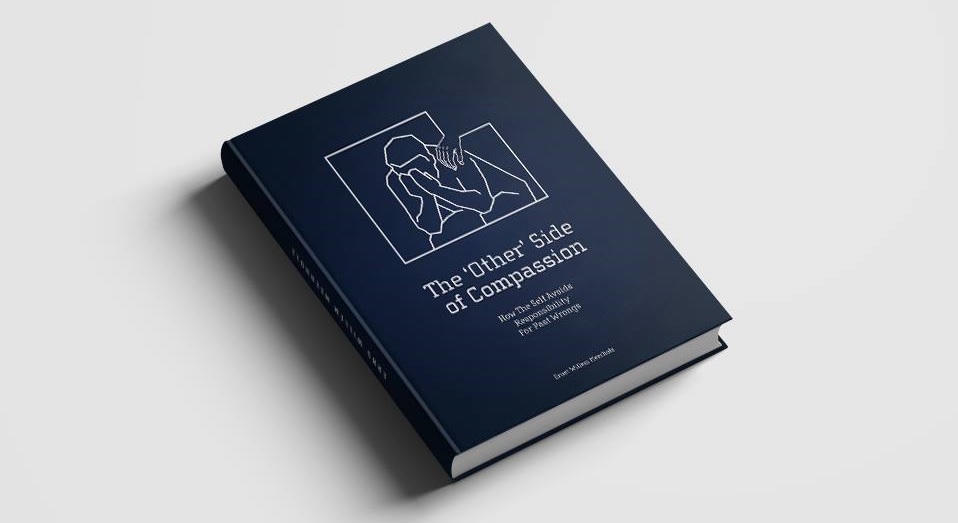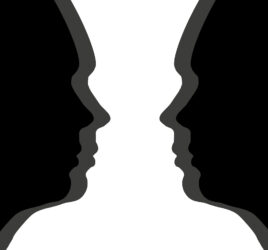
Feeling sorry to avoid feeling sorrow
Almost all of us have harmed another person at some point in our lives – even if the harm was minimal and inflicted accidentally. For instance, maybe you were so busy with work or your studies that you neglected a friend and thereby hurt their feelings. How would you feel when you reflect on this situation? One emotion you may experience is compassion: you recognize that your friend suffered and feel sorry about this. In my PhD project, supervised by Prof. Russell Spears and Dr. Kai Epstude, I wanted to see what feeling compassion does to people in situations like this. Our findings show that this strongly depends on their underlying motivations (Meerholz, 2018).
Previous research has shown that compassion can evoke positive feelings for others (Thomas, McGarty, & Mavor, 2009). This is often attributed to its strong ‘other-focus’: when you feel compassion, you are primarily concerned with the suffering of the other person or group (Lazarus, 1991). You pay little attention to your own thoughts and feelings, or the potential costs of lending the other person or group a hand. As a result, it paves the way towards selfless helping.
“Compassion paves the way towards selfless helping. But what happens if your own group, unjustifiably, inflicted the harm?”
But what happens when the other’s suffering is caused by you, or by a group that you belong to (which can range from something as small as a sports team you are a member of, to something as big as the nation you live in)? We first tested this in a number of studies in which participants were reminded of war crimes committed by their country. We already know that when people are confronted with negative information about their group, this can be experienced as highly threatening (Ellemers, Spears, & Doosje, 2002). While some group members may feel critical about their group’s behavior and experience feelings of responsibility, guilt, shame, anger, and regret, this is less likely to happen when their group is very meaningful to them. For those group members, hearing about the negative behavior of their group is likely to trigger a defensive response. This is because people who find the groups they belong to very meaningful are strongly motivated to maintain a positive image of these groups. They may deny that harm was done, try to downplay the severity of it, or blame the victim (McGarty et al., 2005). But what if this is unrealistic, because they do agree that their group, unjustifiably, inflicted the harm? We suspected that compassion may offer a subtle way out in these situations: exactly because it causes us to focus fully on the other, it allows us to shift our attention away from the harmful behavior that caused their suffering in the first place (Zebel, Doosje, & Spears, 2009). In other words, focusing on the other now serves the function of protecting our self-image.
To test this we had participants read a news article about war crimes committed by their country. We then asked half our participants to think about the suffering of the other group (to evoke compassion), whereas the other half did not receive further instructions. In another study, we showed half our participants neutral photos of the other group (to make them focus on the other), whereas the other half saw neutral photos of their own group. In both studies, the results supported our predictions. For participants who did not identify highly with their nation, compassion and focusing on the other led to an increase in emotions such as guilt, anger, and shame, as well as feelings of responsibility. They also felt a stronger desire to help the other group. However, for participants who strongly identified with their nation, compassion and focusing on the other decreased these emotions and feelings.
“Compassion may offer a subtle way out by decreasing feelings of responsibility.”
You may wonder how these results apply to the example I mentioned at the beginning of this post. After all, this had to do with you harming your friend – no groups were involved. We investigated this in a subsequent line of research. Rather than identification with the group, we now looked at the extent to which people identified with themselves: specifically, the person they were when the event took place. Research has shown that people differ in this regard: some people feel they are the exact same person today that they were ten years ago, others feel like a brand new person – most people fall somewhere in between these two extremes. We predicted that when people still strongly identify with the person they were when they harmed someone else, they find it threatening to recall the event: the act still reflects negatively on who they are today. Therefore, we predicted that focusing on the other through compassion should bring some relief and decrease self-critical emotions.
“By focusing on the other, compassing brings some relief and decreases self-critical emotions.”
We tested this in a series of studies in which participants freely recalled a past event where they harmed someone else. Examples ranged from neglecting a friend (as mentioned earlier), to having extramarital affairs, to criminal behavior. Our findings again supported our predictions: compassion increased feelings such as guilt, shame, anger, and regret among participants who felt like a brand new person, but decreased these feelings among participants who strongly identified with their former self.
Our research is the first to show that compassion can have such opposing effects. Its function strongly depends on people’s underlying motivations. Compassion can pave the way towards selfless helping, but also be a convenient way to look past our own harmful behavior.
Note. Cover of dissertation was designed by Sinan Subaşı, www.behance.net/SinanSubasi
References.
Ellemers, N., Spears, R., & Doosje, B. (2002). Self and social identity. Annual Review of Psychology, 53, 161-186.
Lazarus, R. S. (1991). Emotion and adaptation. New York: Oxford University Press.
McGarty, C., Pedersen, A., Leach, C. W., Mansell, T., Waller, J., & Bliuc, A.-M. (2005). Group-based guilt as a predictor of commitment to apology. British Journal of Social Psychology, 44, 659-680.
Meerholz, E. W. (2018). The ‘other’ side of compassion: How the self avoids responsibility for past wrongs [Groningen]: University of Groningen
Thomas, E. F., McGarty, C. A., & Mavor, I. (2009). Transforming “apathy into movement”: The role of prosocial emotions in motivating action for social change. Personality and Social Psychology Review, 13(4), 310-333.
Zebel, S., Doosje, B., & Spears, R. (2009). How perspective-taking helps and hinders group-based guilt as a function of group identification. Group Processes & Intergroup Relations, 12(1), 61-78.



